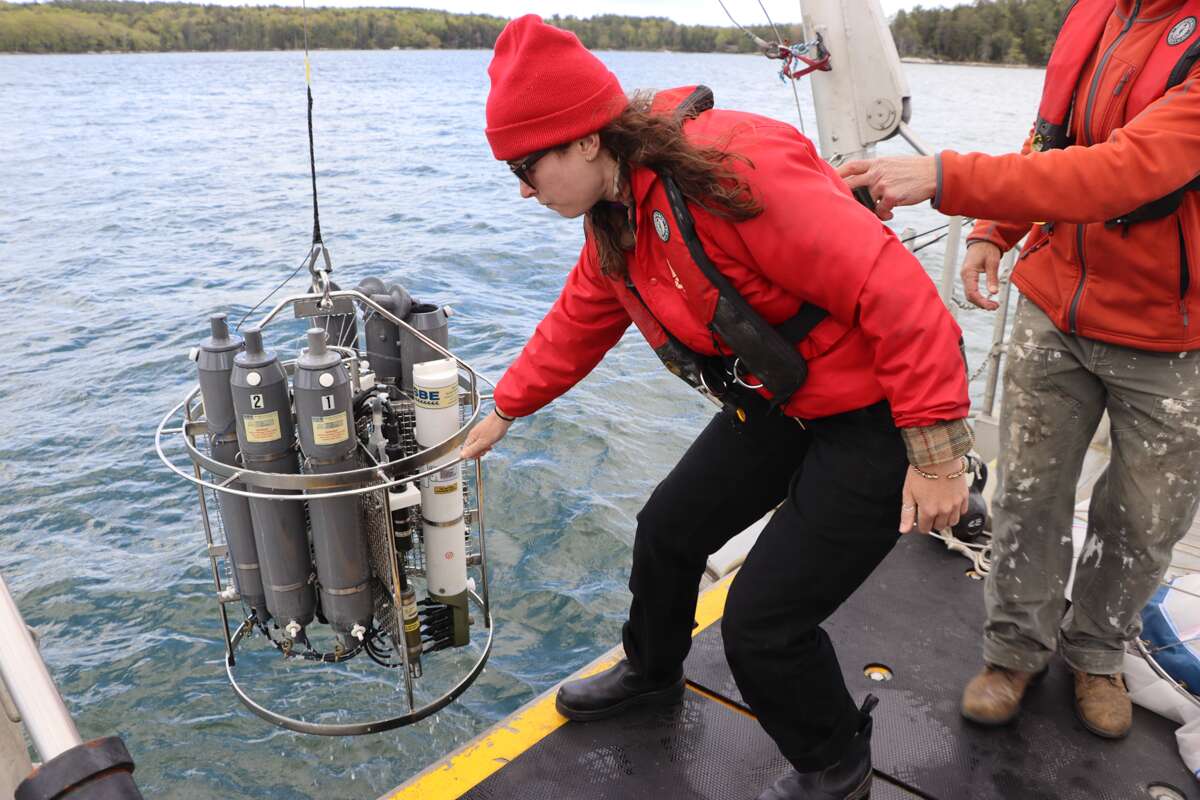
Bigelow Laboratory outfits research vessel that was a gift from Vermont college
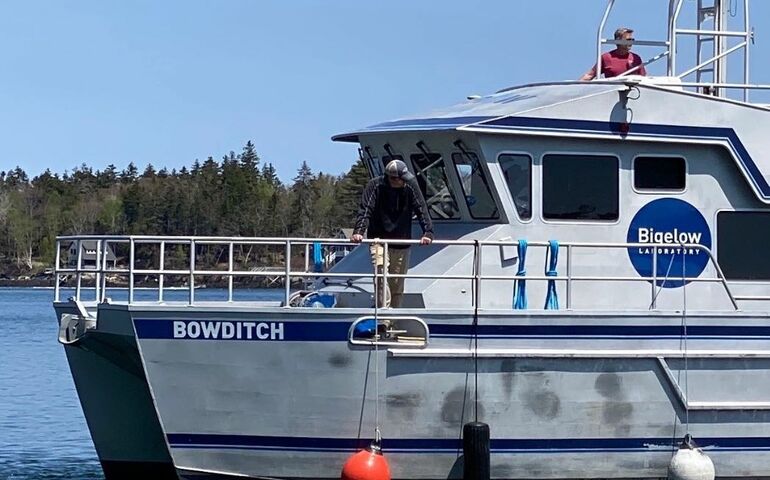 Courtesy / Bigelow Laboratory
With a chartered boat previously used, it would take five hours to reach research sites, leaving little time for research. Now researchers can be on-site in less than two hours.
Courtesy / Bigelow Laboratory
With a chartered boat previously used, it would take five hours to reach research sites, leaving little time for research. Now researchers can be on-site in less than two hours.
Bigelow Laboratory, a marine research facility in East Boothbay, finally has its own research vessel — allowing the lab to install specialized scientific equipment and cut travel time to research sites.
Built as a research vessel and donated by Middlebury College last fall, the 48-foot R/V Bowditch has dedicated lab space and sophisticated electronics.
Consultations with scientists are underway to outfit the boat with specialized equipment they need for research. The vessel is also expected to enhance the lab’s educational programs.
In the past, the lab chartered the R/V Ira C., a modified lobster boat operated by the University of Maine.
Senior research scientist David Fields plans to use the boat for a new project monitoring zooplankton around a federal leasing site for wind energy development. The sampling sites are more than 20 miles offshore.

With the chartered boat previously used, he said, it would take five hours just to get there, leaving little time for actual research. With the R/V Bowditch, researchers can be on-site in less than two hours.
With the R/V Bowditch, scientists can now call upon the new vessel whenever they need it. It will allow groups to get out onto the water — and further offshore — faster and more easily adapt to changing weather conditions.
Research
“I think the Bowditch will also prove to be an invaluable resource for Bigelow Laboratory research,” said Dave Drapeau, a senior research associate and marine operations coordinator who is also one of the vessel's two captains.
Drapeau recently received a specialized license that’s required to operate a boat of its size and led the effort to get the vessel ready for use — from applying for Coast Guard certifications to installing specialized equipment.
Drapeau has been working with scientists to outfit the boat with specialized equipment needed for research. Ben Twining, the lab’s vice president for education, needs specific plastic instruments to test for trace metals like iron for which very few measurements have been made in the Gulf of Maine. Others have spoken to Drapeau about installing equipment to take sediment cores or to get continuous, high-resolution images of phytoplankton offshore.
“To install that kind of instrumentation, we have to change some of the ship’s plumbing,” Twining said. “It’s difficult to do that on a boat that you’re just renting for the day, but, now that we have our own, we can actually make those enhancements.”
Twining said Bigelow Laboratory is providing funding to help researchers try the boat and test these kinds of modifications for their own work. The ultimate goal is for the R/V Bowditch to enable innovative new research focused on the Gulf of Maine and local waterways.
Education
The lab set sail with the R/V Bowditch last month with 16 Maine high school students for hands-on research experience.
Educational programs include summer internships. A group science component has participants going out on the water to test water quality, sampling everything from oxygen levels to bacteria counts to zooplankton populations. The program teaches fundamental oceanography field methods and also adds to a long-running ocean health dataset. Fields began sampling along an established transect 12 years ago.
Beyond logistical advantages and hands-on training, less-tangible benefits include lessons in the importance of teamwork and the value of soft skills such as planning and safety, said Twining.
Plans for further educational programs potentially include taking Colby College marine science students on weekend cruises this fall.
“It doesn’t need to be a month-long research cruise,” Twining said. “Getting students onto the water with scientists for even just a few hours is super powerful.”
The acquisition is one of a series of changes at Bigelow Laboratory, including a recently announced $30 million investment into a new center for ocean education and innovation and the creation of a dedicated marine educator position.
“I’m hoping that between the boat and the marine educator, and eventually the new center, all three of these will work together to be able to support a growing number of exciting new and external programs,” Twining said.







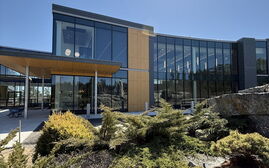
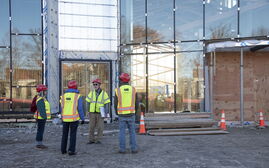
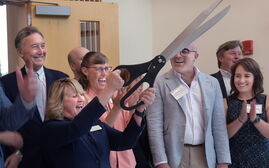




0 Comments